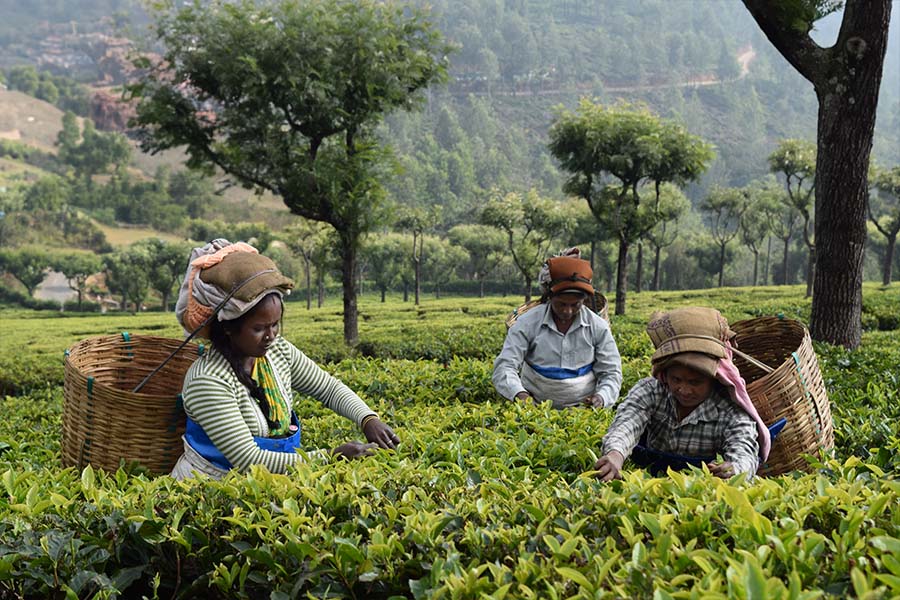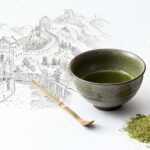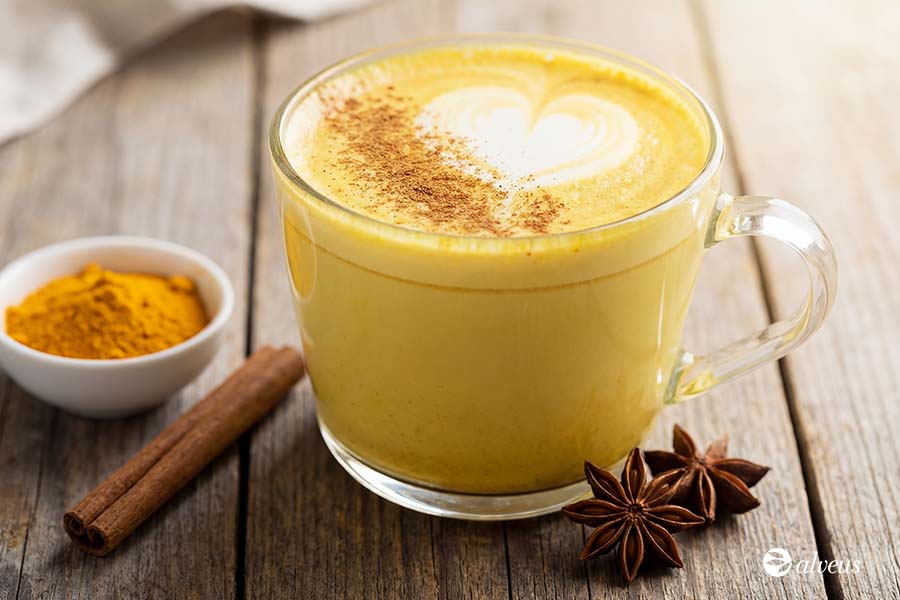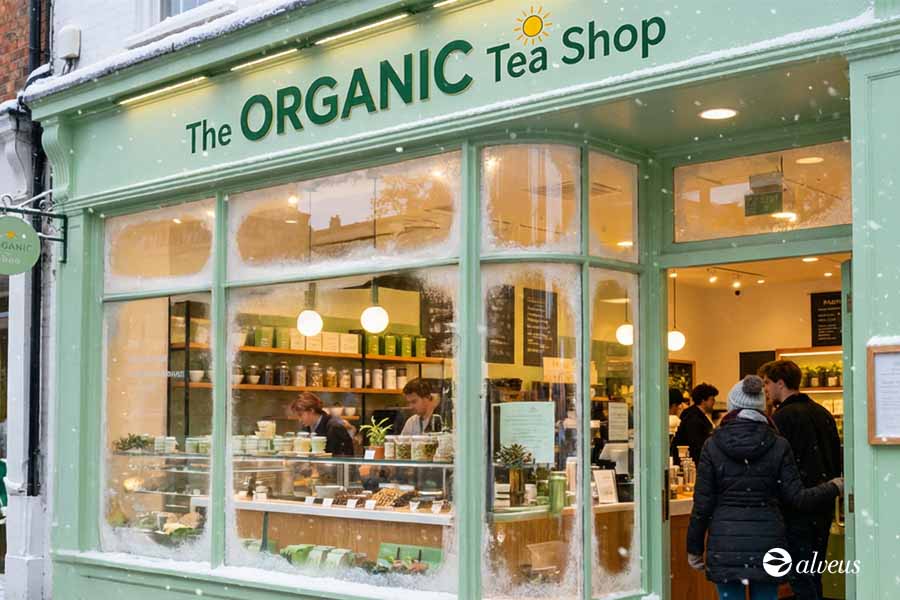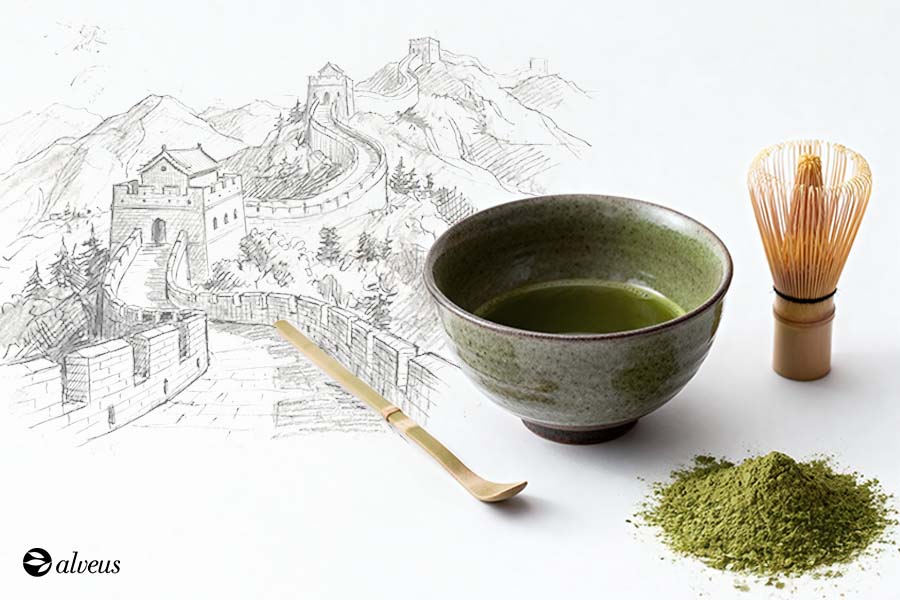India stands as a cornerstone of the global tea industry, offering a wide range of products renowned for their quality and uniqueness.
With its unique geographical and climatic conditions, India produces teas that are distinctive in flavour, aroma, and character. From the robust, malty varieties of Assam to the delicate, aromatic leaves of Darjeeling, each region offers something special that can enhance any tea collection.
This article provides a comprehensive overview of Indian teas, exploring their history, major producing regions, and the most representative teas from each area.
If you’re a tea professional, you’ll find valuable insights here that will enhance your offering and also will allow you to share fascinating stories with your customers about the origin and production process of each Indian tea. This approach not only increases the perceived value of the products but also strengthens the connection between seller and consumer.
History and Tea Traditions in India
The history of tea in India gained particular significance during the British colonial era in the 19th century. The British East India Company, facing trade restrictions with China, promoted the development of tea cultivation in India.
The discovery of the assamica variety of Camellia sinensis in Assam by Robert Bruce in 1823 marked the beginning of the tea industry’s expansion in the region, combining local varieties with the knowledge imported from China.
Throughout the 20th century, the Indian tea industry faced various challenges, including fluctuations in international markets and climate changes. To adapt, the industry has embraced technological innovations and sustainable practices, such as Fair Trade certification and organic tea production.
Chai Tea in Indian Culture
Chai tea, also known as Masala Chai, is a traditional blend of black tea with spices such as cardamom, cinnamon, ginger, cloves, and black pepper. This aromatic and comforting beverage is emblematic of Indian culture, enjoyed both at home and in street stalls.
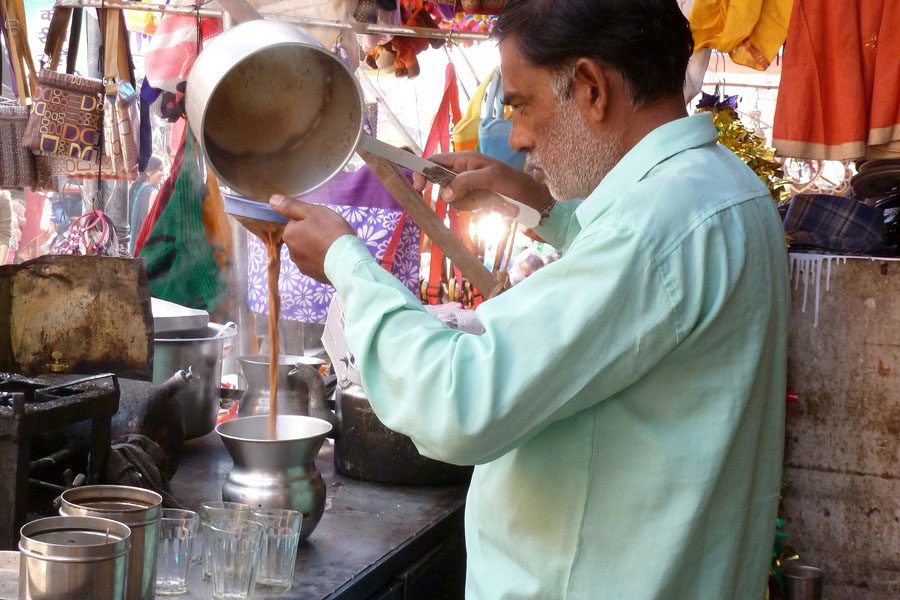
Chai offers a unique and spiced flavour and represents the hospitality and warmth of Indian culture, providing a sensory experience that combines sweet, spicy, and herbal notes in every sip. It’s common for chai to be prepared with milk and sugar, creating a creamy and comforting drink that is shared with family, friends, and visitors.
This traditional tea blend has not only become part of the daily life of Indians but has also gained international popularity, valued for its unique flavour and comforting properties. The preparation of chai varies by region and personal preference, but it consistently serves as a cultural symbol of unity and hospitality in India.
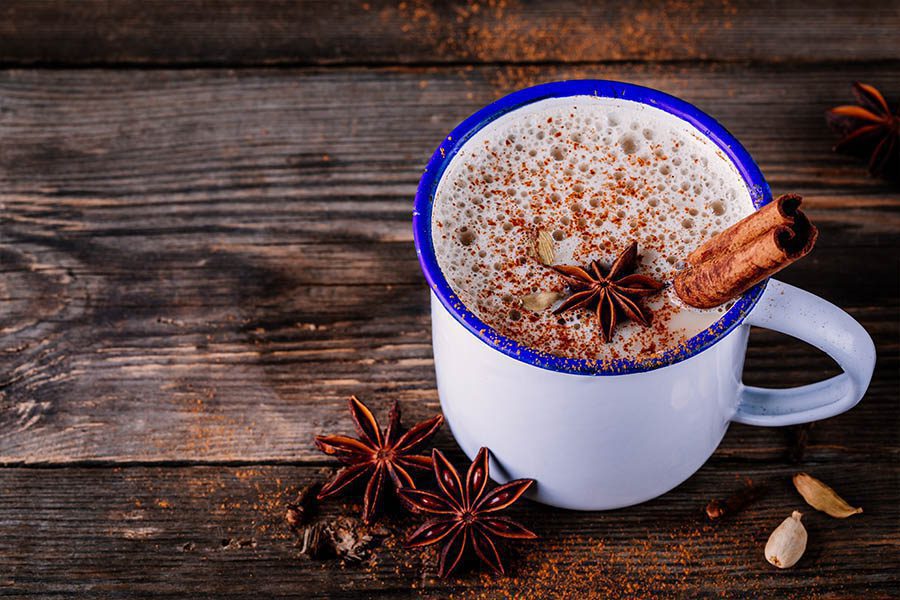
Key Tea-Producing Regions in India
India boasts several tea-producing regions, each with its own microclimate and distinctive characteristics that influence the flavour profile of the teas they produce. Below are the most important ones:
Assam
Assam, located in northeastern India, is the country’s largest tea-producing region, known for its robust and malty black teas.
The region is characterized by its rich alluvial soils and warm, humid climate, ideal conditions for growing the assamica variety of Camellia sinensis. Assam’s significance lies not only in its production volume but also in its economic impact, providing employment to millions and being a vital component of the local economy.
Darjeeling
Situated in the foothills of the Himalayas, Darjeeling is famous for its high-altitude teas, often referred to as the “champagne of teas.”
Tea production in Darjeeling is divided into several harvests throughout the year, each with unique characteristics.
The combination of altitude, climate, and traditional processing methods make Darjeeling teas unique and highly prized on the global market.
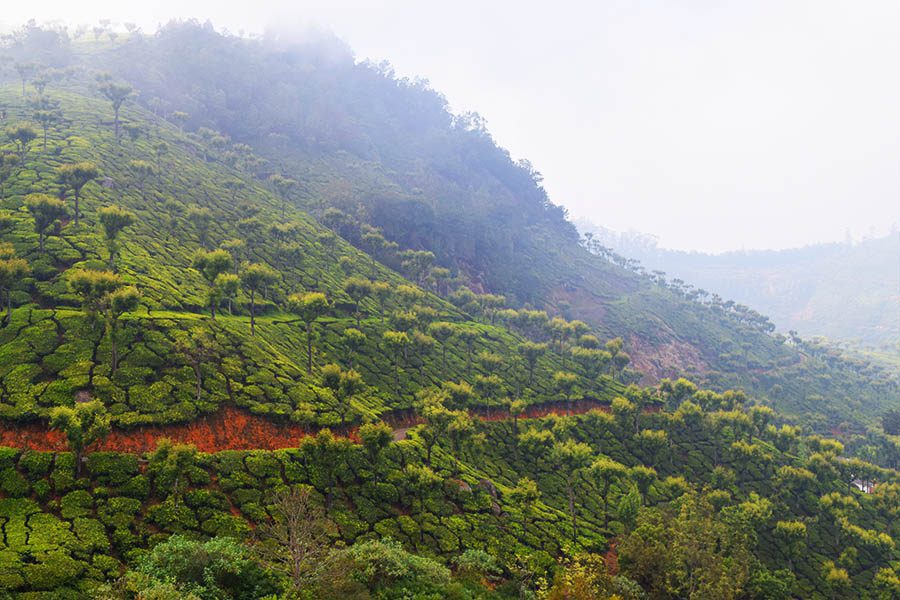
Nilgiri
The Nilgiri Gardens, located in southern India, are known for their aromatic and balanced teas. This mountainous region has a moderate climate with well-distributed rainfall throughout the year, allowing for tea production all year-round.
Kangra
Located in the state of Himachal Pradesh, Kangra is less known than other regions but produces high-quality teas. The region’s cool climate, combined with fertile soils, contributes to the production of teas with a mild flavour and a distinctive aromatic profile.
Kangra has a rich history of tea production dating back to the 19th century. Despite being a smaller region, its commitment to quality has led to increased recognition of its teas on the global market.
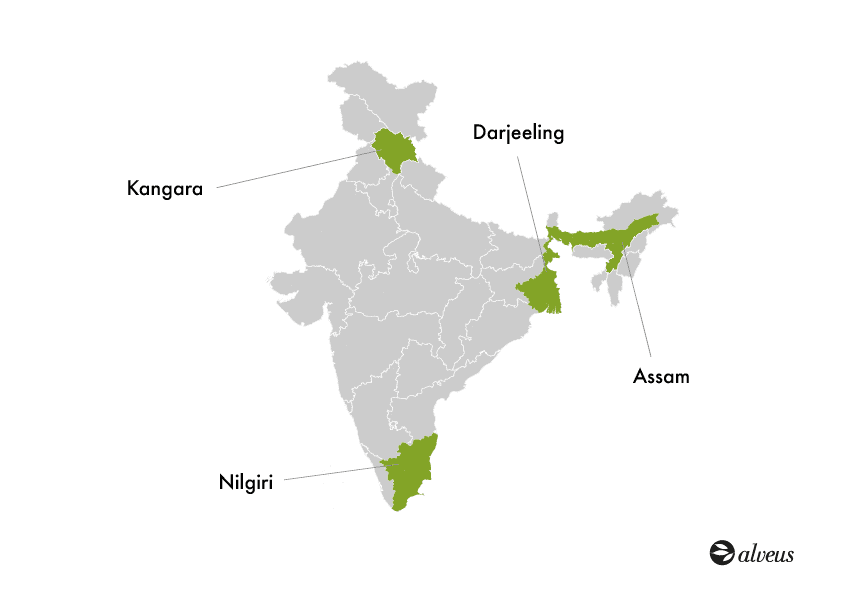
India’s Most Iconic Teas
India produces an impressive variety of teas, each with unique characteristics and flavour profiles. Below are some of the most iconic teas, defining the excellence and diversity of Indian teas.
Assam Black Tea
Assam teas are distinguished by their full body and strong flavour profile, appreciated both in blends and as pure teas. There are two main processing methods for Assam teas: the orthodox method and CTC (Crush, Tear, Curl).
Assam CTC (Crush, Tear, Curl)
This tea is known for its strength and robustness, with a malty flavour. It is especially popular for the classic “chai.”
The CTC technique produces small, uniform leaves that quickly release their intense flavour when brewed, making this tea ideal for those who prefer a vigorous drink.
Assam Orthodox
Unlike CTC, orthodox Assam tea is made using traditional methods that preserve the integrity of the leaves. This results in a more delicate and complex tea, with a full body and notes of caramel and malt. This tea is perfect for enthusiasts seeking a high-quality black tea experience, preferably without milk, to fully appreciate its nuances.
Notable examples include:
Assam Mangalam: Famous for its robust body and intense malty flavour, standing out as a premium choice within orthodox Assam teas.
Assam Golden Tip: A high-quality orthodox black tea, known for its golden buds and rich, malty flavour, consolidating its status as a benchmark among Assam teas.
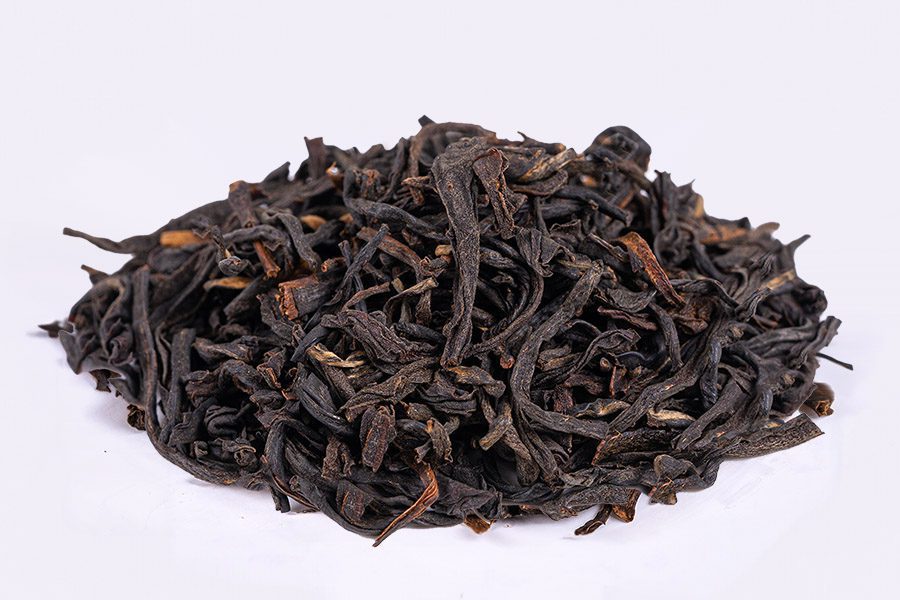
*Assam Golden Tip (“Assam TIPPY Golden FOP Blend”) available at our online store Alveus B2B.
Darjeeling Tea
Darjeeling teas are mostly black, although green, white, and oolong teas are also produced.
Darjeeling First Flush
This tea, harvested in early spring, is valued for its fresh and floral flavour. Light and delicate, Darjeeling First Flush is ideal for drinking on its own, allowing the floral notes and slight astringency of the tea to shine.
Darjeeling Second Flush
Produced in summer, Darjeeling Second Flush tea has a more robust body and is distinguished by its fruity notes, often described as “muscatel,” a unique flavour comparable to that of Muscat grapes. This tea is perfect as a dessert companion, providing an unmatched rich and aromatic experience.
Among the second-flush Darjeeling, Darjeeling Margaret’s Hope tea stands out with its robust and fruity flavour profile. Margaret’s Hope is known for its high quality and distinctive complexity.
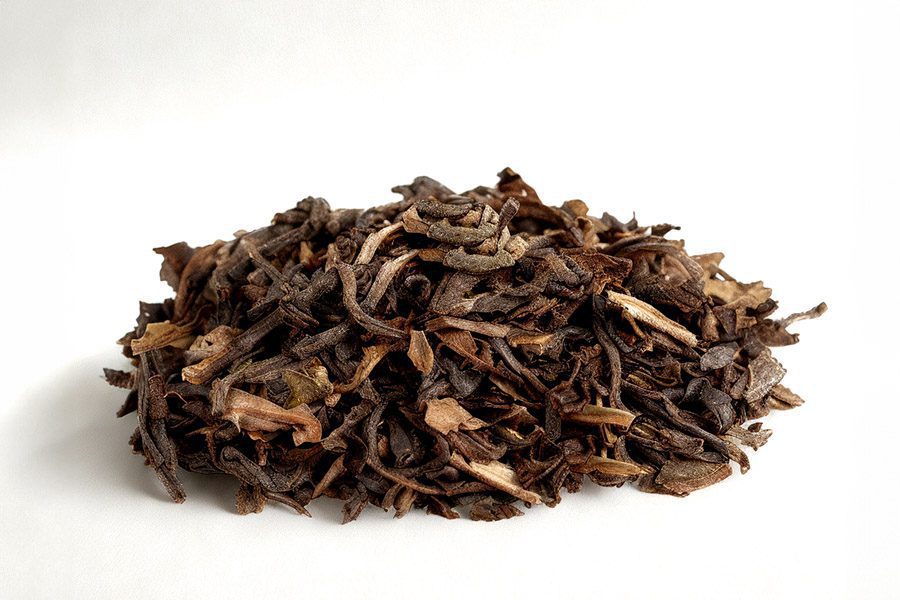
* Darjeeling Second Flush Margaret’s Hope black tea (“Darjeeling TGFOP 1 Second Flush Margaret’s Hope”) is available at our online store Alveus B2B Shop.
Nilgiri Teas
Nilgiri teas have a fresh flavour profile with floral and citrus notes and are less astringent than Assam teas, making them ideal for drinking without milk.
The processing method in the Nilgiris also focuses on preserving the freshness and aroma of the leaves, resulting in teas that are popular in blends and iced teas due to their ability to maintain their flavour in different preparations. Additionally, the Nilgiris have gained recognition for the production of speciality teas, including white teas and oolongs, which are valued for their delicacy and complexity.
Nilgiri Frost Tea
Produced during the winter months, this tea has a unique flavour profile with a slight astringency. It is excellent enjoyed on its own or as part of aromatic blends.
Nilgiri Orthodox
Balanced and smooth, with a clean and bright taste, it is a perfect option for those who prefer lighter black teas.
Among this variety of Indian teas, Nilgiri Korakundah stands out as an orthodox tea known for its superior quality and balanced flavour, characterized mainly by floral notes.
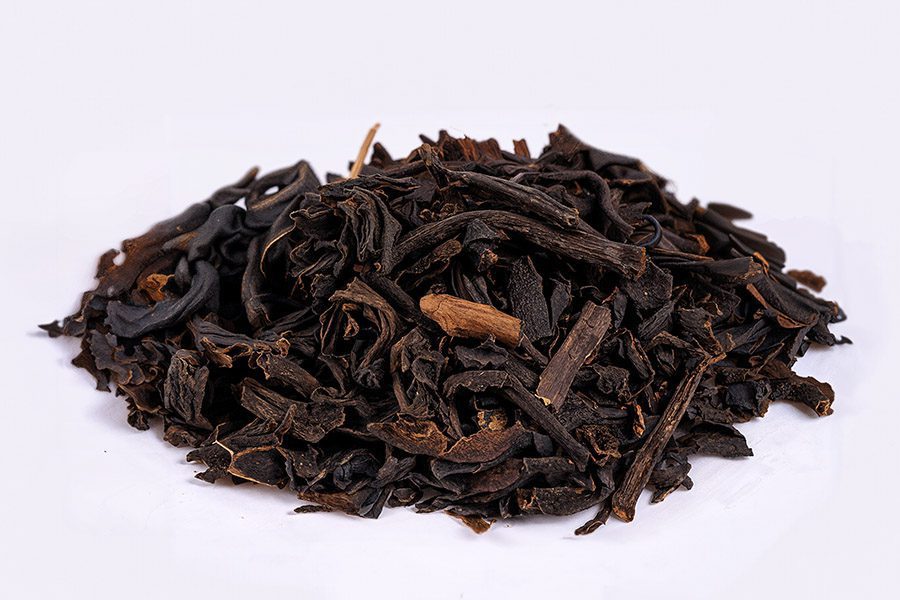
* Nilgiri Korakundah Black Tea (“South India OP Korakundah BIO”) available at Alveus B2B Shop.
Kangra Tea
Kangra teas are known for their mild and aromatic flavour, including both fresh green teas and delicate black teas.
Kangra Green Tea
This green tea is refreshing, with light herbal notes and a clear, bright colour. It’s great for those seeking a healthy and flavourful alternative to darker teas.
Kangra Black Tea
With a mild and fruity flavour, this tea is perfectly enjoyed on its own or with a touch of honey. It offers a unique black tea experience compared to other Indian tea-producing regions.
Conclusion
In conclusion, India’s tea industry is characterised by its exceptional diversity and quality, making it a cornerstone of the global tea market.
From the robust black teas of Assam to the delicate Darjeeling varieties, each region offers a unique range of flavours and aromas, shaped by its specific geographical and climatic conditions.
This rich legacy has grown stronger over time, making tea an integral part of India’s economy and culture, as well as providing employment to millions and significantly contributing to the country’s GDP.


